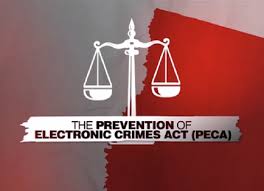Islamabad: The ruling Pakistan Muslim League-Nawaz (PML-N) on Wednesday went ahead with a comprehensive set of amendments to the Prevention of Electronic Crimes Act (PECA), 2016.
The proposed amendments are designed to enhance regulation of social media, particularly to address the increasing spread of misinformation and harmful content on digital platforms. The draft amendments have been shared with the Pakistan People’s Party (PPP) and are currently being considered in the National Assembly.
The amendments were introduced by Prime Minister Nazir Tarar, who highlighted the government’s commitment to tackling the challenges posed by digital disinformation. The revised draft proposes significant changes to the penalties for those found guilty of spreading fake news online.
Initially, the draft proposed a prison term of up to seven years for those found guilty of such offences. However, the latest version has reduced the maximum sentence to three years while retaining the fine of Rs 20 lakh. Despite differences between the PML-N and PPP over the proposed term of imprisonment, both parties have largely agreed on the framework of the amendments.
One of the key elements of the proposed changes is the establishment of a Social Media Protection and Regulatory Authority. This new regulatory body will play an important role in monitoring the activities of social media platforms, monitoring content and ensuring that online information complies with national laws and regulations. The Authority shall have the power to punish persons or organizations found guilty of spreading false or misleading information. i
t will have enforcement powers with other key regulatory agencies such as the Pakistan Telecommunication Authority (PTA) and the Federal Investigation Agency (FIA).
According to the latest draft, the law would specifically criminalize the intentional dissemination of false information that could cause public unrest, fear or disorder. The punishments specified in the draft include imprisonment up to three years, fine up to Rs 20 lakh or both.
Additionally, the authority will be empowered to process complaints expeditiously, ensuring that any content deemed harmful or misleading is removed from social media platforms within 24 hours of receiving a request. can go
The proposed amendments also state that social media platforms operating in Pakistan will be required to register with the newly formed regulatory authority. This will give the authority more oversight and control over the content shared on these platforms.
Platforms that fail to comply with regulatory requirements may face penalties, including being blocked within Pakistan. The provisions are part of the government’s broader strategy to combat the spread of fake news and ensure that online content complies with the country’s legal and social standards.
An important addition to the draft is a provision that prevents the broadcasting of statements on social media by banned organizations or their members.
The law seeks to prevent the broadcast of any parliamentary proceedings that have been excluded or removed, ensuring that only officially approved material is available to the public. The move is seen as an attempt to maintain the integrity of the parliamentary process and prevent the spread of unauthorized or misleading information.
The proposed amendments also introduce the creation of a Social Media Complaints Council, which will be responsible for receiving complaints from individuals who feel they have been disturbed by fake or harmful content online.
Additionally, a Social Media Protection Tribunal will be set up to adjudicate these cases, which will ensure that complaints are processed and resolved within a maximum of 90 days. These provisions aim to increase transparency and accountability in the regulation of online content.
While the government has emphasized that the changes are aimed at curbing the spread of fake news and misinformation, critics have criticized such measures as potentially restricting free expression and giving the government excessive control over digital content. Concerns have been expressed about
The final draft of the bill is expected to undergo further discussion in parliamentary committees before it is officially signed into law.












